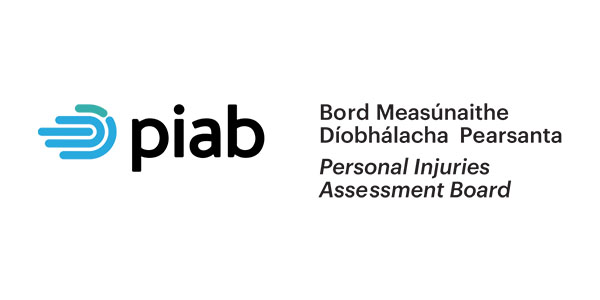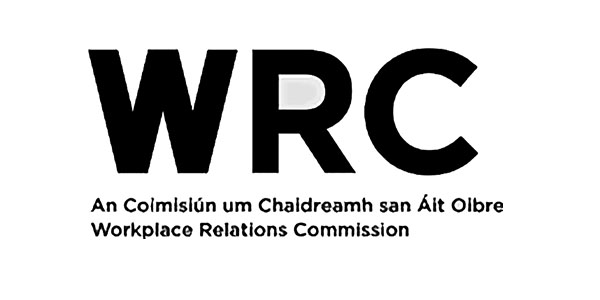Medical misdiagnosis happens more frequently than many expect. It can have lasting impact on a person’s quality of life and life expectancy and a devastating effect on the levels of trust between medical personnel and patients. There are a number of medical negligence solicitors in Longford who can help you with advice in this area. If you believe you have a misdiagnosis claim in Longford please get in touch here.
Misdiagnosis is not always a result of negligence on the part of the medical professional but when it does occur it is important to investigate whether the impact of the misdiagnosis could have been avoided with more stringent care. Medical staff are expected to take a full case history with every patient and make detailed analysis of overall health before recommending a course of action. This helps them identify symptoms, causes and predict outcomes based on overall health. If a part of a patient’s history is missed due to a lack of attention to detail or a slip in procedure, among many other things, then this can lead to a ruling of negligent misdiagnosis.
Negligence can also be recorded when there has been an inappropriate length of time between investigation and diagnosis, possibly allowing symptoms to worsen and the impact on the individual’s health to grow.
If the correct follow-up and management of consultant or other expert investigation or examination is not sought by the medical practitioner this can also be examined as negligence in duty of care.
It is a very complex and important area of law and if you feel that your health has been compromised by medical negligence then it’s vital that you seek expert legal advice on a confidential basis.
There are generally three main types of misdiagnosis:
Incorrect diagnosis
This is simply when the medical practitioner has got it wrong. They have followed an examination and its outcome and delivered a prognosis which ultimately turns out to be incorrect. The outcome of this can result in inappropriate medication being prescribed, crucial time lost in the management of the correct prognosis and delay in the effective treatment of the underlying condition.
Delayed diagnosis
Pressure of workload, ineffectual management of patient cases and poor procedural management in a GP’s practice, for example, can all result in a delay in diagnosis. However, none of these factors are the fault of the patient. If a significant delay occurs between examination and diagnosis because of the work procedures of the medical practitioner, the outcome for a patient can be very serious.
Failure to diagnose
In many cases a medical staff member may fail to recognise symptoms which can be considered to be with the range of normally identified symptoms. If these are missed this can be ruled as being due to negligence.
Is Misdiagnosis always Medical Negligence?
Not all misdiagnosis is automatically considered medical negligence. There are many areas of healthcare which present overlapping symptoms and conflicting results that blur the area between two separate prognoses. It is the role of the medical practitioner, such as your GP, to identify the conflict in symptoms and make decisions around diagnosis which are responsible and reflect the possible outcomes of diagnosis. Even if the diagnosis eventually proves to be wrong, it can be argued that the prognosis was a typical one for the symptoms that were presented. Seek expert legal advice if you are unsure whether your diagnosis falls into the realm of misdiagnosis or an unfortunate but unavoidable and fair prognosis, given all the information.
Misdiagnosis categories
There are many areas of human health that are prone to misdiagnosis, including symptoms around meningitis, strokes, diabetes, IBS, epilepsy and cancer. The three largest groupings of illness are generally considered to be vascular events, infections and cancers.
Vascular events
Diseases in this category affect the circulatory system and include hypertension, stroke, cardiovascular and peripheral artery disease. As the age people are living to increases due to overall advances in healthcare, so there is a subsequent rise in these types of illnesses. They are progressive diseases and when they are not diagnosed in time or correctly there is serious impact on the lifespan and health outcomes of the patient.
Infections
Infections such as meningitis, spinal infection, pneumonia and endocarditis are all linked to infections that are notoriously difficult to identify quickly. However, they all pose major issues as they can progress in severity rapidly so if there is a delay or misdiagnosis the impact can be devastating for patients.
Cancers
Breast cancer, colorectal, prostate and skin cancers are conditions which some researchers consider to be increasingly prone to misdiagnosis or delayed or incorrect diagnosis.
If you have concerns around the timing and/or the effectiveness of a diagnosis in any of these or related areas seek expert legal advice on how to investigate this further. This is not an extensive list – there are many other areas of diagnosis that apply also, including diagnosis of ectopic pregnancy and irritable bowel syndrome.
Who can be responsible for a misdiagnosis
There are a great many roles within healthcare that can impact a diagnosis. Consequently, each of them can be included in an investigation of a misdiagnosis. The following is not an extensive list but it can give you a very clear sense of the complexity of medical diagnosis and reinforces the need for expert help with your case.
The kinds of healthcare roles that can be responsible include:
- General Practitioners
- Consultants
- Emergency Medical practitioners
- Dentists
- Audiologists
- Oncologists
- Radiologists
- Laboratory Technicians
- Psychologists
- Psychiatrists
- Ophthalmologists
- Dermatologists
- Obstetricians
Factors considered in determining a settlement
When helping a person to investigate misdiagnosis, a legal representative will consider many factors, but the most important one is that each case is unique. Your health and lifestyle is particular to you and while it may seem on first discussion that your case and another are very similar, the personal background to each diagnosis needs to be examined in full.
Your legal advisor will need to look at your age and stage of life, your diagnosis and the impact it had on your lifestyle as well as try to estimate if you should be seeking general or specific damages.
What are General damages?
Damages that are considered to fall under a general heading include financial compensation for any discomfort or pain suffered by misdiagnosis, any loss of bodily function or ability and any ongoing impact that will remain with you as a result of the misdiagnosis.
Special damages
Special damages reflect the impact on your personal financial status as a result of the misdiagnosis. These include loss of earnings, additional travel expenses incurred to receive treatment, new medical expenses and bills created by the diagnosis and any costs for special care or support.
What can I claim for?
You can claim for compensation or damages related to many different areas – these include financial compensation for pain and suffering, loss of earnings, costs associated with the misdiagnosis – including corrective surgery and ongoing healthcare; rehabilitation and any costs incurred by loss of ability to support your dependents.
Timeline
After a misdiagnosis how long do I have to make a claim for misdiagnosis?
Claiming for a mistake in diagnosis is complicated and requires expert legal assistance. It takes time and a great deal of supporting documentation. However, there is a limit on the amount of time within which you can make a claim.
In Ireland there is a standard limitation of 24 months from the date of the negligent diagnosis or, in the case of later recognition of a mistake, then 24 months from the point at which a misdiagnosis was recognised. This can occur because the misdiagnosis allowed symptoms to develop that do not manifest for some time. There is often a delay between receiving a diagnosis and realising that a mistake has been made. The statute of limitations in Ireland recognises this and the 24 months limitation begins at this point of recognition.
What if my child was misdiagnosed?
Children who received a misdiagnosis have the time limit extended to begin at their 18th birthday. From that point the 24-month statute of limitation begins. This is because children under 18 are not allowed to instruct a solicitor.
Making your claim
A claim for misdiagnosis of a medical condition is a highly complicated and procedural area of law. You will need to seek out expert legal representation to bring a claim against your medical practitioner.
How do I make a medical negligence claim?
To bring a claim of misdiagnosis you need to be confident that you received a sub-standard level of care that resulted in an impact on your standard of living. To establish this for yourself you need to have a concern that the standard of care you received fell below what is expected of a typical health care professional of the same status.
You must also have a concern that you have suffered unnecessary injury, illness or loss of income as a result of the misdiagnosis. You will be required to prove this, either through testimony or recorded documentation from your healthcare provider.
How do you prove Misdiagnosis?
You may only have a belief that your care was substandard at the point in which you seek advice. Your legal advisor will be able to help you determine whether that belief is accurate by bringing you through a process that seeks to identify how you were treated, the outcomes and whether this breached any duty of care or caused outcomes that you would otherwise not have experienced. You will give personal testimony as well as allow access to your health records to determine the impact of diagnosis.
Starting the claim process
If you believe that you are due compensation or damages for medical misdiagnosis then contact an expert legal representative here.






